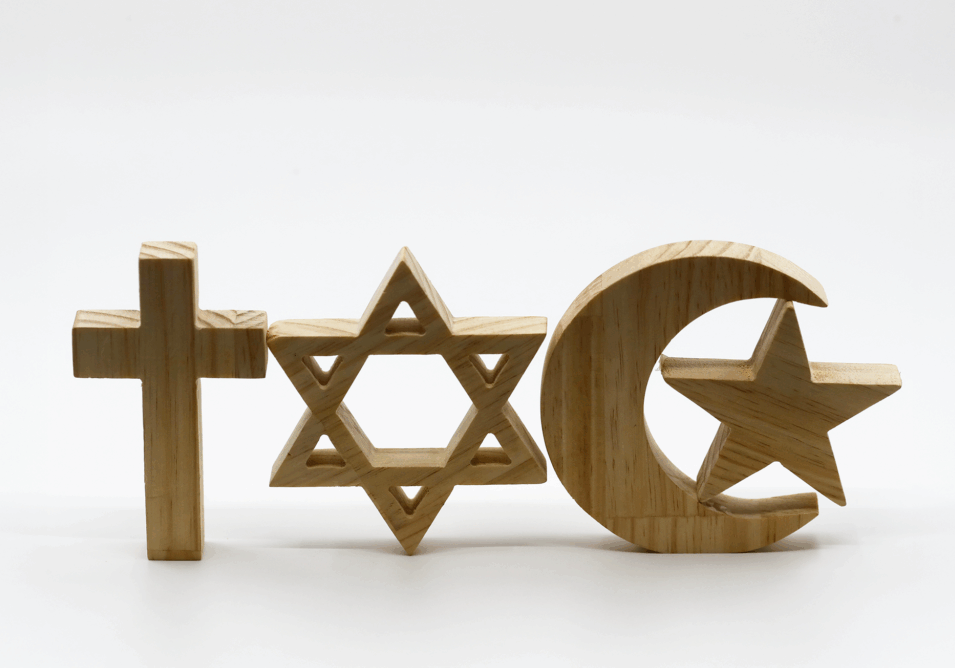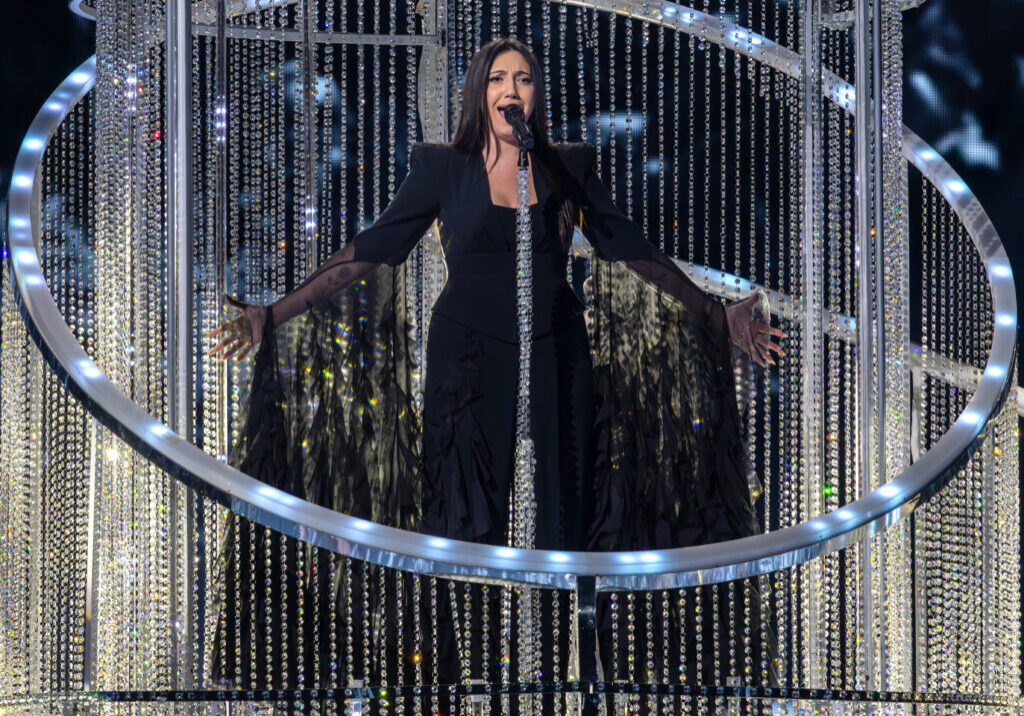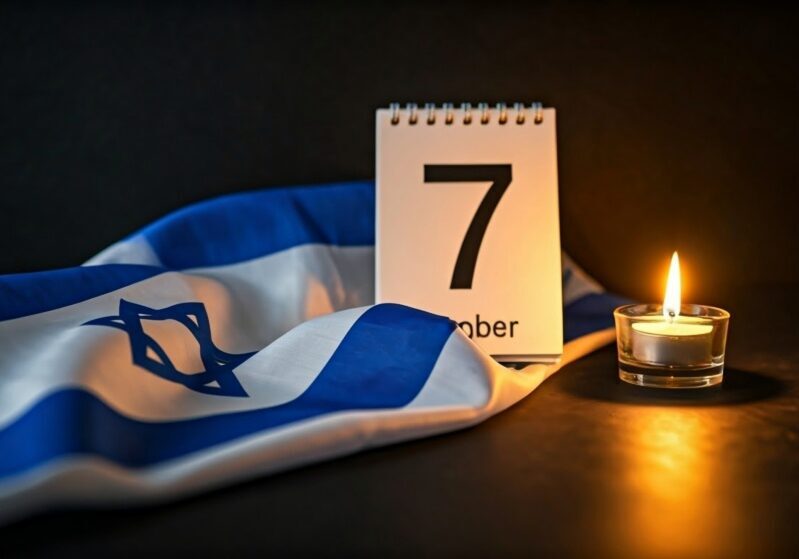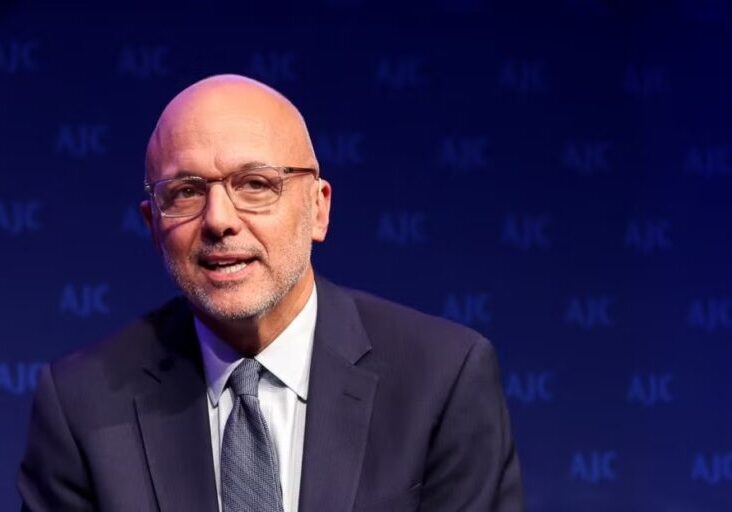Australia/Israel Review
The Last Word: Rome and Jerusalem
May 31, 2019 | Jeremy Jones
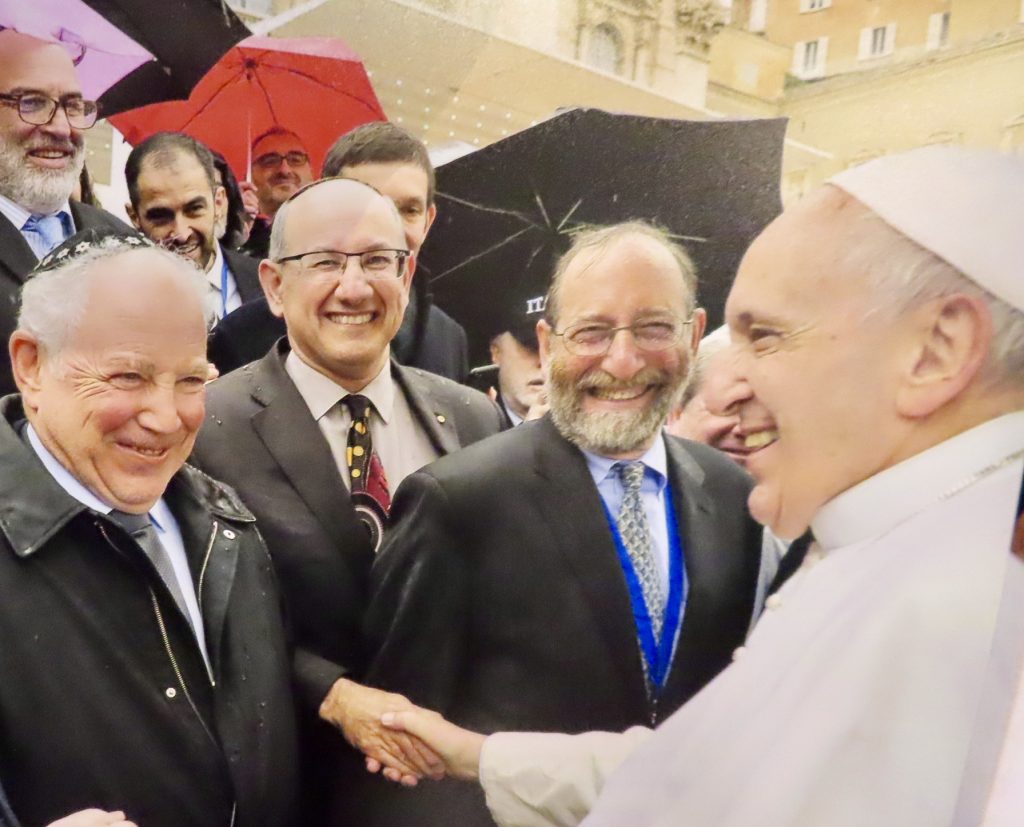
Out of nowhere, a small army of young men appeared, each carrying an umbrella.
Rabbis, cardinals, academics, priests and others caught in the unseasonal May shower were grateful for their salvation from imminent drenching, as we stood waiting in St Peter’s Square.
Onlookers observed that this group of men and women engaged variously in light-hearted banter and serious discussions were clearly enjoying each other’s company and taking the unpleasant weather in stride.
When Pope Francis approached the group, he also seemed in a good mood, ready to exchange respectful comments with a delegation which included both some distinguished Vatican figures and Jewish leaders in inter-religious activism.
The Pope’s comments, helpfully provided in print, were not unimportant, but the symbolism of the personal interactions was far more significant.
We had gathered in the heart of Catholicism for the 24th meeting of the International Catholic-Jewish Liaison Committee (ILC) – a partnership between the Holy See’s Commission for Religious Relations with the Jews and the International Jewish Committee for Interreligious Consultations [IJCIC]. The IJCIC is the coalition of the world’s Jewish communal organisations charged with official relations with other world religious bodies.
The ILC held its first meeting in 1971 when it marked a historic confirmation of relations between the two religions following the publication of Nostra Aetate, the declaration of the Second Vatican Council that opened a new era of relations between Catholics and Jews.
From the opening event at the stunning Palazzo della Cancelleria, attended by dignitaries from government, religious communities and civil society, until the reports by dedicated working group chairs and the adoption of the joint declaration three days later, the gathering was an exemplar of intense, respectful, thoughtful and inspiring discussions.
I welcomed having a discussion with the Prime Minister of Italy, Giuseppe Conte, on Australian multiculturalism and the contribution to Australia of Italian Australians. However, this was simply an added extra to a program which ranged across global concerns (the movement of peoples), focussed issues (such as the situation of Christians in Israel and the relations between the Holy See and Jerusalem) and into areas of collaboration (combatting antisemitism, protecting Christian victims of religious persecution and securing and furthering religious freedom).
When the discussion moved to consideration of Catholic-Jewish relations, we were in the unique position of having the writers and guiding hands behind crucial studies and declarations participating in the discussion.
In all subject areas, the conversations included participants at the coal-face, whether Christian leaders confronting challenges to rights to freely practise, administrators of refugee rescue and integration efforts, educators on campus or Jews grappling with changed environments across Europe and the USA.
I had the responsibility of co-chairing the Working Group on Combatting Antisemitism, with my friend Professor Joseph Seivers. Of all the working groups, we not only had the most members but also both the best balance of Jewish and Catholic delegates and the broadest geographic representation. This is a testament to how seriously this issue is taken as a global issue with an impact on broader society, and not only the Jews targetted by it.
The amount of expertise, scholarship and experience shared within the Working Group was remarkable, and the passion and emotion with which Catholic and Jewish participants spoke was inspiring.
Hearing the reports from the other groups, my sense is that we are in an age of genuine, meaningful cooperation and collaboration, facing a seemingly endless series of challenges best approached in a collegiate spirit.
As the Conference Declaration noted, we concluded with “an affirmation of the extraordinary model of interreligious understanding and dialogue that the ILC represents to the world at large and to the religious world in particular.”
The Conference co-chairs Cardinal Koch and Rabbi Dan Polish spoke of the ILC’s agenda as “sacred work”. It is difficult to argue with this description.

